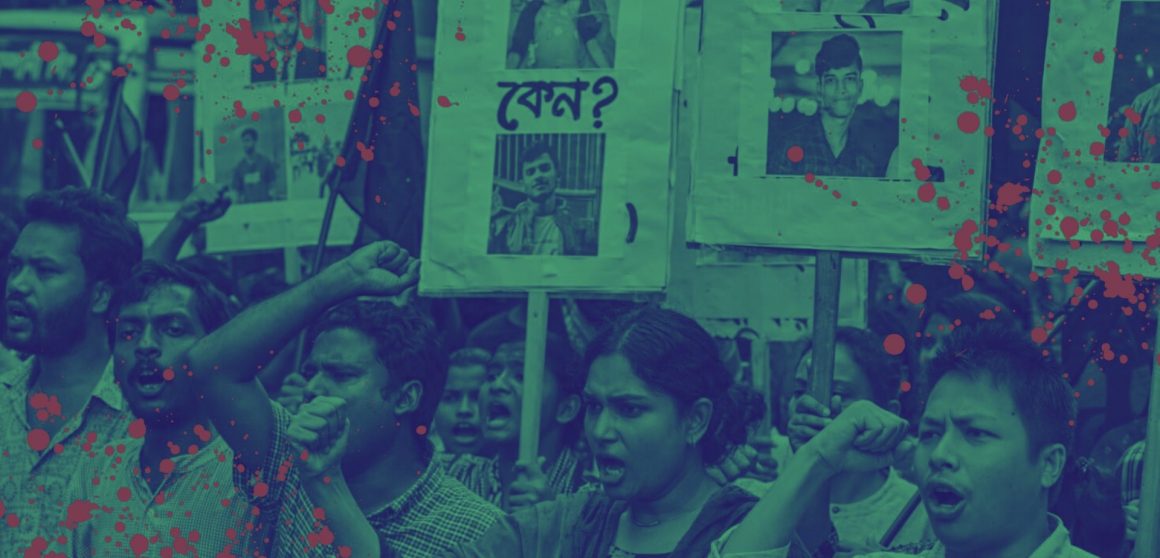
A right to be heard, a duty to listen: the aftermath of the Bangladesh student protests
By Marvellous Chukwukelu, July 31 2024—
In 2018, after widespread protests for reform, the government of Bangladesh cancelled the quota-based system that was previously used in hiring individuals for government jobs. However, on the 5th of June 2024, the Bangladeshi High Court declared the 2018 ruling illegal, canceling it and effectively reinstating the quota system. To little surprise, that decision has revived the student-led protest movements that initially took down this quota system.
Unfortunately, the government of Bangladesh has now chosen to go down a draconian path in response to this wave of protests by instituting curfews and unleashing a wave of brutal and often deadly state-sponsored violence.
While the decision of the Bangladeshi Government to suppress this protest is deplorable, it is hardly surprising. After all, if you trace the history of modern protests ranging from the Arab Spring uprisings to the widespread campus protests against the Gazan genocide – including one at our very own university – established institutions have settled into a pattern of violently opposing any form of protests against their status quo.
This is not the way it should be though. By opposing the fundamental right to assemble, associate, and protest against perceived injustice, Bangladesh opposes one of the core principles of the democracy it claims to practice. In fact, in its very own constitution, Articles 37 and 38 guarantee Bangladeshi citizens this right to assembly and association. And although some may argue that the constitution also mentions that such assemblies are subject to ‘reasonable restrictions imposed by law’, the realities of the restrictions being imposed by the Bangladeshi government are not only far removed from reason but are reminiscent of some of the tactics that have been employed by perpetrators of human rights violations in recent times. Curfews are not reasonable – they violate a fundamental right to freedom of movement and have recently come under fire as being one of the tools the Nigerian Government employed in the leadup to the Lekki Massacre. Internet shutdowns are not reasonable – they violate a fundamental right to freedom of expression, block the free flow of information, and – as recently as 2022 – have been tied to prolific human right abuses in multiple nations. Shoot-on-sight orders are not reasonable – but do I really need to explain why people should not be killed indiscriminately.
The Bangladesh Students’ Society released a joint statement with similar organizations across Canada, calling for international action and recognition of police brutality.
“This state-sponsored brutality represents a gross misuse of power and a blatant disregard for human life and dignity,” reads the statement.
On July 17, the Bangladeshi Scholars Association (BSA) at the University of Calgary also released a statement in solidarity with the student protesters in Bangladesh.
“The students protesting peacefully show that they carry the spirit of historical movements that have significantly shaped our nation.”
Interestingly, the same can be said for many other nations. From Bangladesh and the Liberation War of 1971 to the United States and the Boston Tea Party, numerous nations that have recently been criticized for their treatment of protesters are nations that have protests baked into the history of how they achieved sovereignty. Yet, despite these historic ties to movements that are still celebrated and studied today, those at the helm of power somehow fail to recognize that by eagerly shutting down these demonstrations, they have not only ignored the spirit upon which their countries were founded but have assumed the role of oppressors, and that is hypocritical.
Growing up, ‘children are the future’ is a phrase that was echoed throughout every step of my pre-tertiary education, and it was echoed for good reason. The average life expectancy in the world is 73.8 years old while the average tertiary student age in the world is between 18–22 years. This means that students are inherently the ones who will be the most affected by decisions being made today and will also be the ones forced to live through the ramifications of aforementioned decisions. As such, students tend to have a worldview that is not as myopic or docile as that of older generations. So, when students protest, they are advocating for the kind of world they want to live in and this future-focused view has historically found them on the right side of sociopolitical issues.
In his famous definition, Abraham Lincoln described democracy as a government for, of, and by the people but the keyword I want to focus on is ‘for’. It is pertinent that elected officials remember that they are there to only serve the interest of the people who voted them in and you can only serve their interests by listening to them. That is the Bangladeshi people’s right and that is the Bangladeshi government’s duty.
